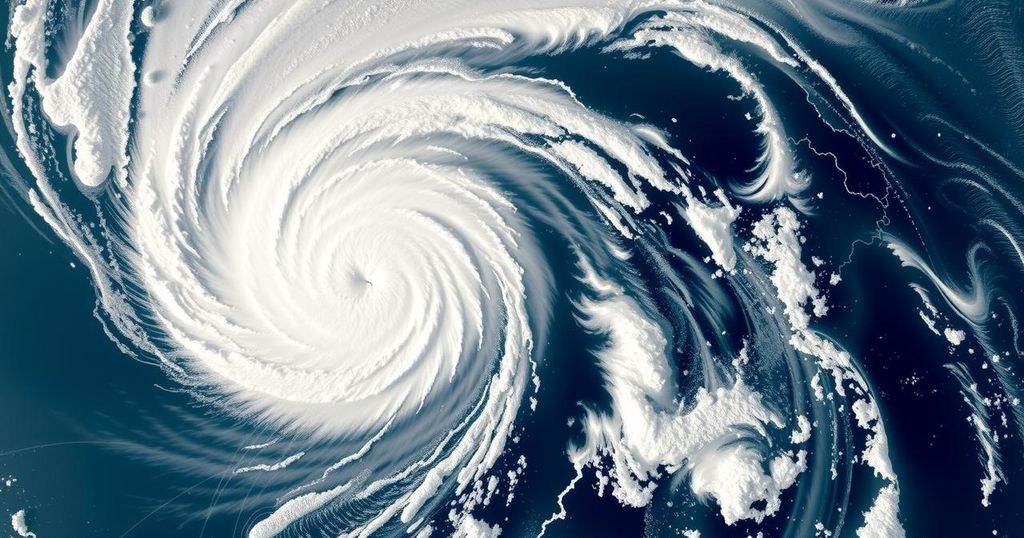Cyclone Chido Devastates Mayotte and South-Eastern Africa, Raising Famine and Disease Fears

Cyclone Chido has devastated Mayotte and south-eastern Africa, with confirmed fatalities rising to at least 22 in Mayotte and 45 in Mozambique. Search and rescue efforts continue, hindered by power outages and looting, raising fears of famine and disease. Climate change is believed to have intensified the cyclone’s impact, raising concerns among residents about future storms as recovery operations unfold.
Cyclone Chido has wreaked havoc across the French territory of Mayotte and parts of south-eastern Africa, resulting in substantial destruction. The cyclone has claimed at least 22 confirmed lives and injured 1,400 individuals in Mayotte, with search efforts ongoing for many presumed missing beneath debris and floodwaters. The region is expected to see an increase in casualties as recovery operations continue. In Mozambique, the death toll has risen to 45, with approximately 500 reported injuries, while Malawi’s toll has increased from seven to thirteen.
Estelle Youssouffa, a deputy for Mayotte in the French parliament, highlighted the plight of undocumented migrants, stating, “The real toll of those swept away by the mud, winds, and tin from shantytowns will never be known.” In northern Mozambique’s Cabo Delgado province, the cyclone’s impact has been devastating, having destroyed over 35,000 homes and left 90,000 children affected by the crisis.
The extent of damage includes widespread power and water outages in Mayotte, complicating ongoing rescue operations. Looting has emerged as a serious issue due to the lack of electricity, prompting concerns over safety and security. Alexis Duclos, editor-in-chief of Flash Infos, remarked, “The situation remains chaotic.” Despite efforts to transport food and water supplies, authorities are concerned about the imminent risk of famine and disease. Mayor Ambdilwahedou Soumaila emphasized the urgent need for these essentials, warning of potential sanitary crises as bodies begin to decompose.
Climate change is believed to have exacerbated Cyclone Chido’s intensity, as warm waters in the Indian Ocean create conditions conducive to superstorms. With a population of approximately 321,000, Mayotte faces exacerbated vulnerabilities due to overcrowding and inadequate resources. Darkaoui Hakim expressed fears for future storms, emphasizing the necessity for long-term solutions. In a response to the crisis, President Emmanuel Macron is scheduled to visit Mayotte soon, and a period of national mourning has commenced to honor the victims of this calamity.
The recent destruction caused by Cyclone Chido in Mayotte and south-eastern Africa has underscored the severe repercussions of climate change on vulnerable regions. As cyclones become increasingly powerful due to warmer ocean waters, the situation is compounded by socio-economic challenges, particularly in areas with a high number of undocumented residents. The combination of natural disaster and human factors has resulted in a humanitarian crisis, illuminating the urgent need for disaster preparedness and resource management in these regions.
Cyclone Chido has devastated Mayotte and parts of south-eastern Africa, leading to significant loss of life and widespread destruction. The humanitarian crisis, coupled with the challenges of recovery amidst power outages and potential health hazards, poses urgent concerns for the affected populations. As the cyclone season progresses, it is imperative for local and international authorities to address these challenges through effective resource allocation and disaster prevention strategies.
Original Source: www.thetravel.com








